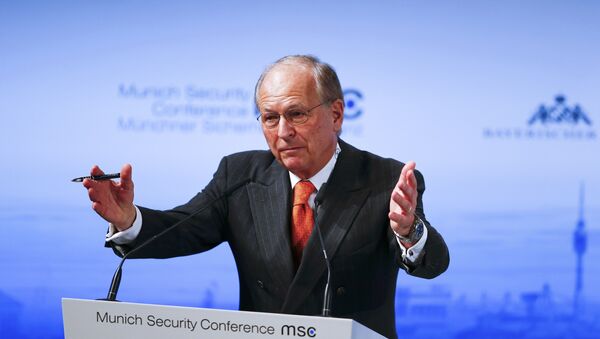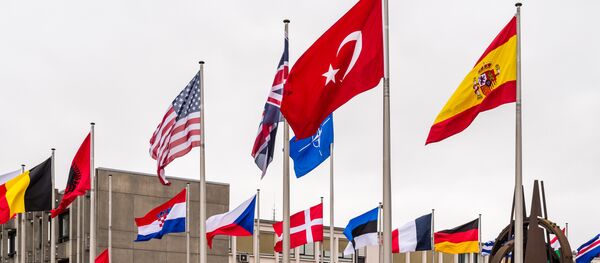"During the Cold War, it [dialogue] was about power and security policy, military issue. Today, it seems to me, dialogue has become even more poisonous than ever before. It is so disappointing due to the fact that the majority of Germans over the past decade, primarily because of gratitude for German unification, have become big supporters of Russia. All this is now being destroyed by the current propaganda," Ischinger said in an interview.
Ischinger added that Germany needed "prosperous and strong Russia, with which it would be possible to have a fruitful partnership."
Moscow's relations with the West deteriorated in 2014 over the Ukrainian crisis, when the European Union along with the United States and some other countries imposed several rounds of sanctions against Russia, accusing it of meddling in Ukraine's internal affairs, a claim Moscow has repeatedly denied.
The loss of trust will continue to overshadow relations between Russia and Germany for a long time, Wolfgang Ischinger told Sputnik.
"I think that it is possible to recover the poisoned atmosphere created by propaganda of recent months relatively quickly. The prerequisite for this would be, first and foremost, a consensus between the US, EU and Russia, especially in complex issues, particularly on the issue of Donbas. At the same time, I fear that the loss of trust will be reflected in our relations in a long-time perspective," Ischinger said in an interview.
According to Ischinger, relations between Russia and Germany have worsened primarily due to a "propaganda war which leads to alienation between the people and the total loss of confidence between the governments."
The relations between Russia and the European Union, including Germany, deteriorated in 2014 amid the crisis in Ukraine. Brussels has introduced several rounds of anti-Russia sanctions since Crimea seceded from Ukraine and reunified with Russia in 2014 and Moscow was accused of meddling in the Ukrainian conflict.
Moscow has repeatedly refuted the allegations. In response to the restrictive measures, Russia has imposed a food embargo on some products originating in countries that have targeted it with sanctions.




